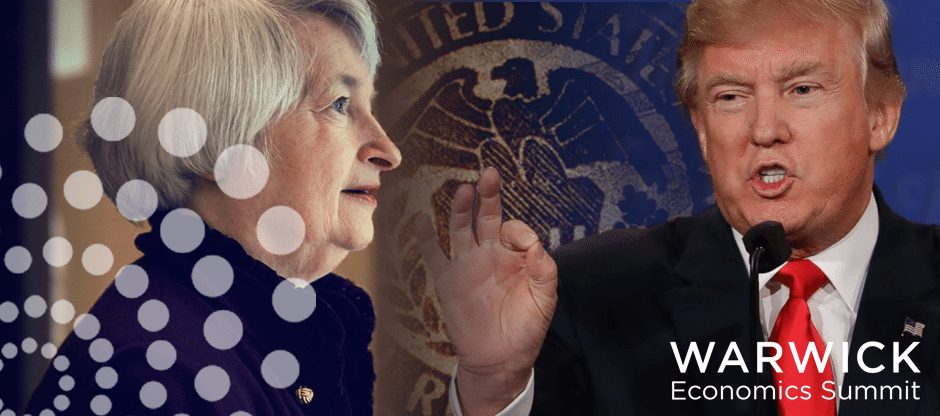WES: The future of the Federal Reserve under Donald Trump
On the 8th of November, Donald Trump was elected to become the 45th President of the United States of America, causing some anxiety about the future of the Federal Reserve.
Upon news of his victory in the US presidential election, the market experienced a short-lived negative response. Why only short-lived? In his victory speech, President-elect Trump was quick to quell fears of what his presidency could look like, calling himself “a president for all Americans”. Following his speech, Trump has made significant shifts and compromises to his far-fetched policy proposals. However, although he has already diverged from many of his far-right ideals, it is widely believed that he will still continue to pursue his macroeconomic plan of fiscal stimulus.
As if a self-actualising process, the market is already getting ready for a fiscal stimulus package. Over the past two weeks, stocks have risen with investors preparing themselves for Trump’s looser fiscal policy, whilst bond yields have surged amid fears of inflation, making it more expensive for the government to service its debts.
This comes in direct contention with the Federal Reserve’s plans; Janet Yellen and Stanley Fischer, Chair and Vice Chair of the Federal Reserve Board of Governors, have both stated that the central bank is ready to raise interest rates later this year. Although contradicting Trump’s fiscal intentions, the proposed monetary policy could work alongside looser fiscal policy. Long before Trump’s election, the inflation rate was already at 2.3% – An attempt to cool the trend before or in line with Trump’s fiscal stimulus could protect the market from the inflation rates increasing too steeply.
According to Fischer, the US economy is already close to its goal of full employment and the long-run inflation of 2%. He believes that a more expansive fiscal policy will increase the neutral rate and ‘ease the task of monetary policy’. Yellen asserts that Trump needs more clarity with his policies and remains adamant on continuing with higher interest rates in order to avoid abrupt policy changes later on, even if it clashes with Trump’s tax and government spending policies that can enact inflation.
Moving forward, the biggest factor to dictate the future of the US economy under President-elect Trump will be his relationship with the Federal Reserve. As a presidential candidate, he attacked the Chair of the Federal Reserve board for her choices of policies countless times, further questioning the integrity of the Federal Reserve as a whole. The terms as the Chairs of both Yellen and Fischer end in 2018, however, they are permitted to remain on the board of governors until 2024 and 2020 respectively, should they choose to do so. Yellen has already stated she will continue on as a governor after stepping down in the spirit of the Federal Reserve to respect the integrity and separation of the Congress and the Central Bank.
Should there be more contentious opinions between Congress and the Fed regarding fiscal and monetary policies, President-elect Trump and his Republican-controlled Congress could potentially amend the Federal Reserve Act to better suit his leadership; though, as showed by his shifted stances on other issues, that could be highly unlikely.
By Ryan Lee
This piece is part of Warwick Economics Summit’s #WESWednesday blog series. The Boar Finance section is WES’ official student media partner for the academic year 2016/2017. You can view the original piece and other blog posts here.

Comments